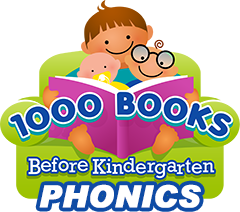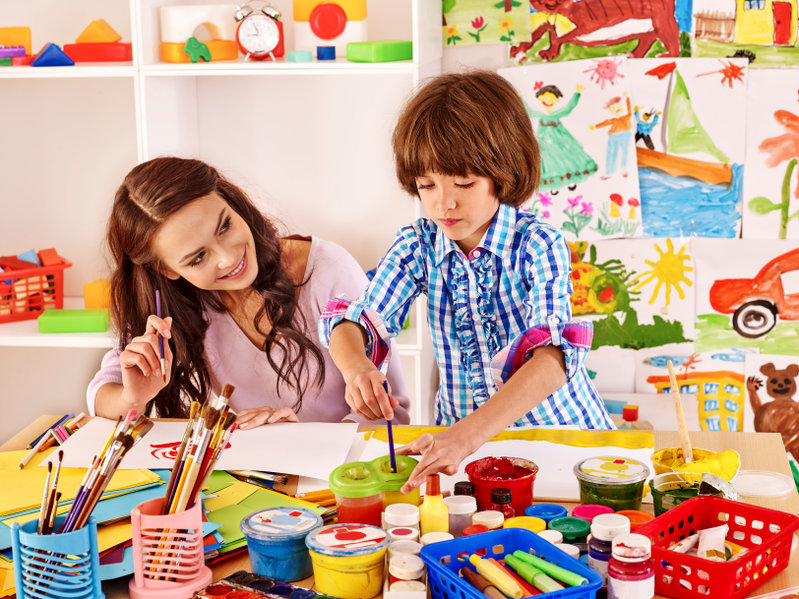The old adage that children should be seen and not heard has no place in an environment where you want to build language skills. To help a child learn to read you do not need special training. Rather, children simply need to be given opportunities to building spoken language, learn about words, and learn about the sounds of spoken language. One tremendous way to kick start your child’s reading is through our comprehensive early reading phonics program where your child will build all of these skills. Coupled with the 1000 Books Before Kindergarten Challenge your child’s reading skills will flourish from a very young age.
In addition to a structured phonics program, some great ideas to help build a child’s language skills comes from the National Institute for Literacy which recommends using opportunities throughout the typical day:
- Mealtimes can be good opportunities for individual and small group conversations with children.
- Ask questions that encourage the child to think—questions involving analysis, prediction, imagining things that could happen.
- Kneel or squat to be able to have eye contact with the child.
- Extend your conversation with the child. Conversations should go back and forth with each person responding to other speaker at least a few times.
- Themes help children understand and remember the meanings of new words, especially when you build activities around a theme.
- Involve all of the children in the group in at least one individual conversation every day.
- Make connections with books the class has read and recent classroom activities to help build meaning.
- Expand on the child’s language by repeating it with extensions (adding descriptive words, using words correctly that child used incorrectly), adding to or building on the child’s ideas.
- Two-way conversations mean that the child should be doing at least half the talking.
- One or more individual conversations should take place with each child in the setting every day.
- Texts, such as books, posters, newspapers, and magazines provide shared topics to talk about. Read them with the child, asking questions and discussing them as you go along.
- Act out stories with the children, re-using words from the book you read aloud with the children.
- Language should include rich, varied vocabulary in talking with the child that build on classroom themes and experiences.
- Keep the conversation going through questions, expansions, comments.
Learning to read and write should start at home before a child goes to school. Talking, singing, and reading to infants can start to build reading skills from a very young age. Encourage your child to speak with you and answer your child’s questions. By using the tips above, along with children’s phonics guides and other tools you can create a positive learning atmosphere where your child’s language skills will thrive.

